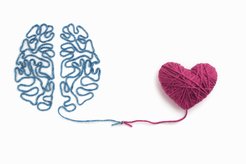Lost and Found Emotions in the History of Economic Modeling
Shabnam Mousavi

The presence (and absence) of emotions in economic modeling of human behavior have been largely executed and explained so far in relation to integration (and ignorance) of cognitive psychology, e.g., behavioral economics results from integration. Revisiting this phenomenon through the lens of history of emotion accounts for a new interpretation of modeling structures in relation to the societal and cultural context within which these models were crafted. It also allows a firsthand approach to the modeling of human behavior that is not limited to cognition-based instruments, but openly and directly accounts for emotions as legitimate behavioral factors for analysis. This project replaces the lens of cognitive science with the Lost and Found Emotions framework of Ute Frevert (2011) to generate a new narrative of the path undertaken by economist modelers rooted in the history of emotion in the Western world. The scientific inquiries of mathematical economists will be portrayed and understood as a product of the treatment of emotions in the society combined with the attitude of social scientists generally regarding emotions as soft (feminine) and thus lacking scientific rigor. A number of interviews add color to this narrative.
